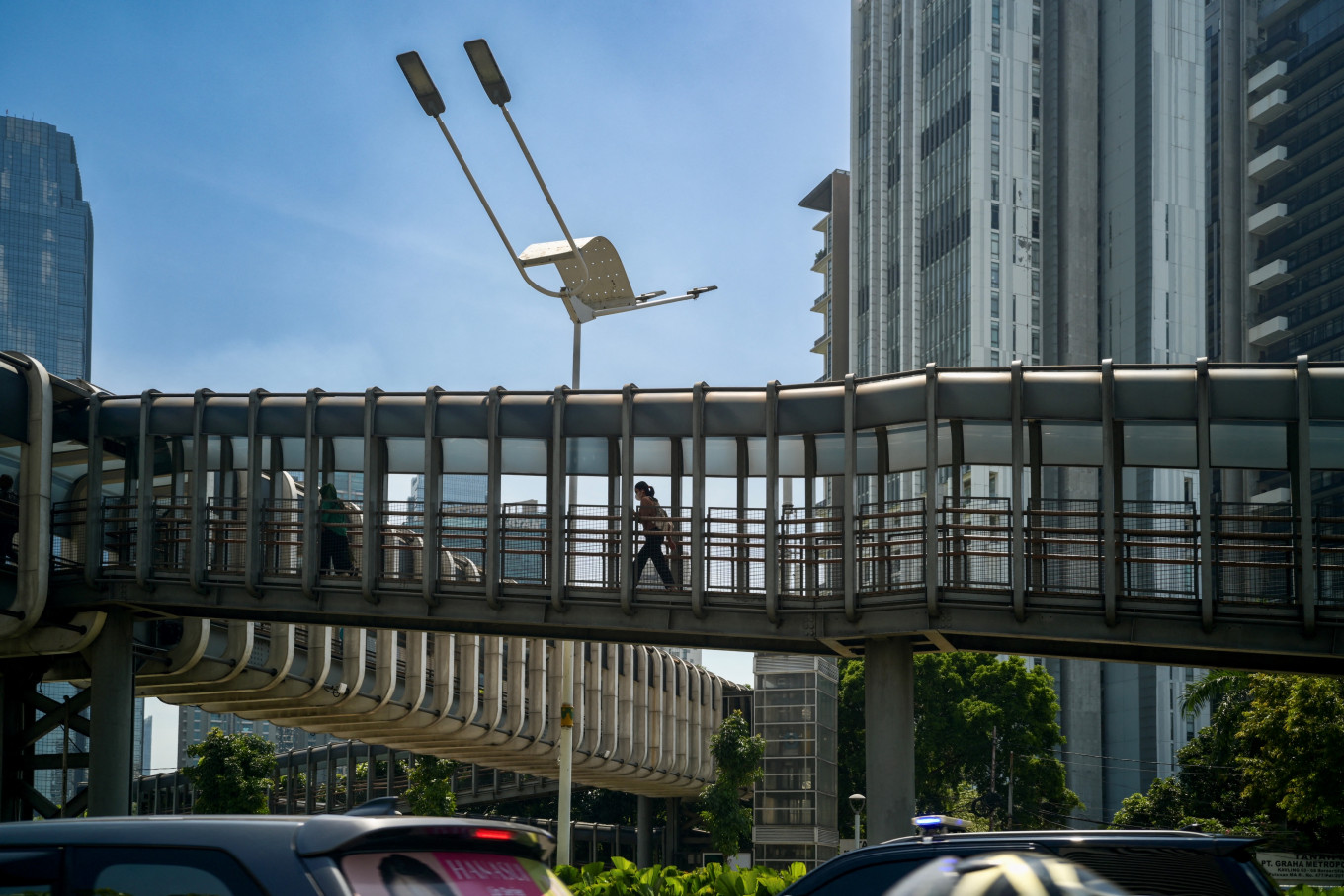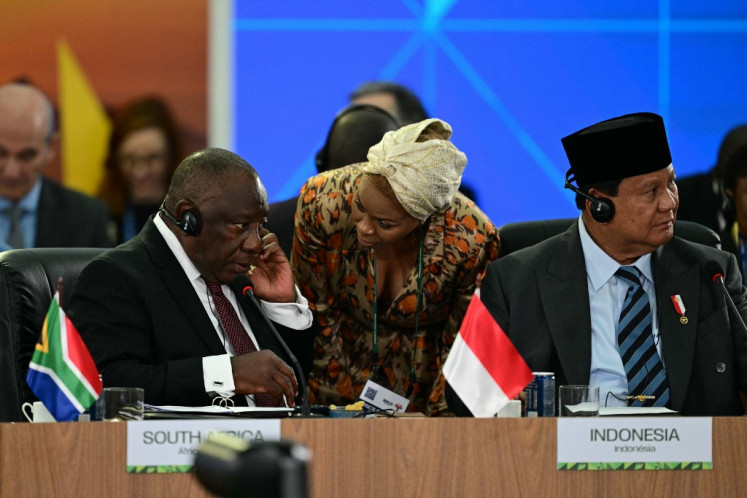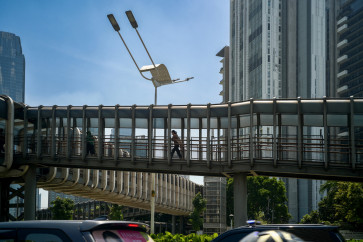Popular Reads
Top Results
Can't find what you're looking for?
View all search resultsPopular Reads
Top Results
Can't find what you're looking for?
View all search resultsProtecting consumers through the lens of the financial sector omnibus law
The West Jakarta District Court decided recently to acquit the defendant in the case of Indosurya Savings and Loans Cooperative (KSP Indosurya) of all charges.
Change text size
Gift Premium Articles
to Anyone
W
e were shocked by the fact that the West Jakarta District Court decided recently to acquit the defendant in the case of Indosurya Savings and Loans Cooperative (KSP Indosurya) of all charges. KSP Indosurya has allegedly caused Rp 106 trillion (US$7.3 billion) in losses to 23,000 people.
It is arguably the biggest embezzlement case, supposedly, to date. Even the Coordinating Political, Legal and Security Affairs Minister Mahfud MD could not shy away in displaying his annoyance. Instead of issuing a trite statement that we should respect the decision, he said we could not avoid the court’s decision.
The Court argued that the reason for the release is because the act was not a criminal act, but a civil one. The minister conversely argued that KSP Indosurya breached banking and money laundering laws. Regrettably, at the end of the day, the Court sided with the defendant. It is water under the bridge. As of now, cassation is the only remedy available for the prosecutor’s office to take and we hope justice will find its way.
The decision coincides with the recent enactment of the Financial Sector Development and Strengthening Law (P2SK). The objectives of this law are, among other things, to improve consumer protection and to strengthen supervision in the financial sector. One would wonder how we should look at the case akin to KSP Indosurya through the lens of the P2SK Law.
First, the P2SK Law shifts the authority over cooperatives in the financial sector to the Financial Services Authority (OJK).
Under the previous regime, cooperatives were under the authority of the Cooperatives and Small and Medium Enterprises Ministry. Even though cooperatives provided loans to people other than their members, they were still under the supervision of this ministry. But the P2SK Law will change this practice.
The OJK has the authority over cooperatives carrying out activities in the financial sector, which satisfies one of these criteria: if they collect funds from parties other than their members and from other cooperative members; disburse loans to parties other than their members and/or to other cooperatives members; receive funding sources from banks and/or other financial institutions that exceed certain thresholds; and/or carry out financial services outside of savings and loans business. If a cooperative falls under these criteria, then it must be licensed by the OJK and is therefore under the OJK’s supervision.



















